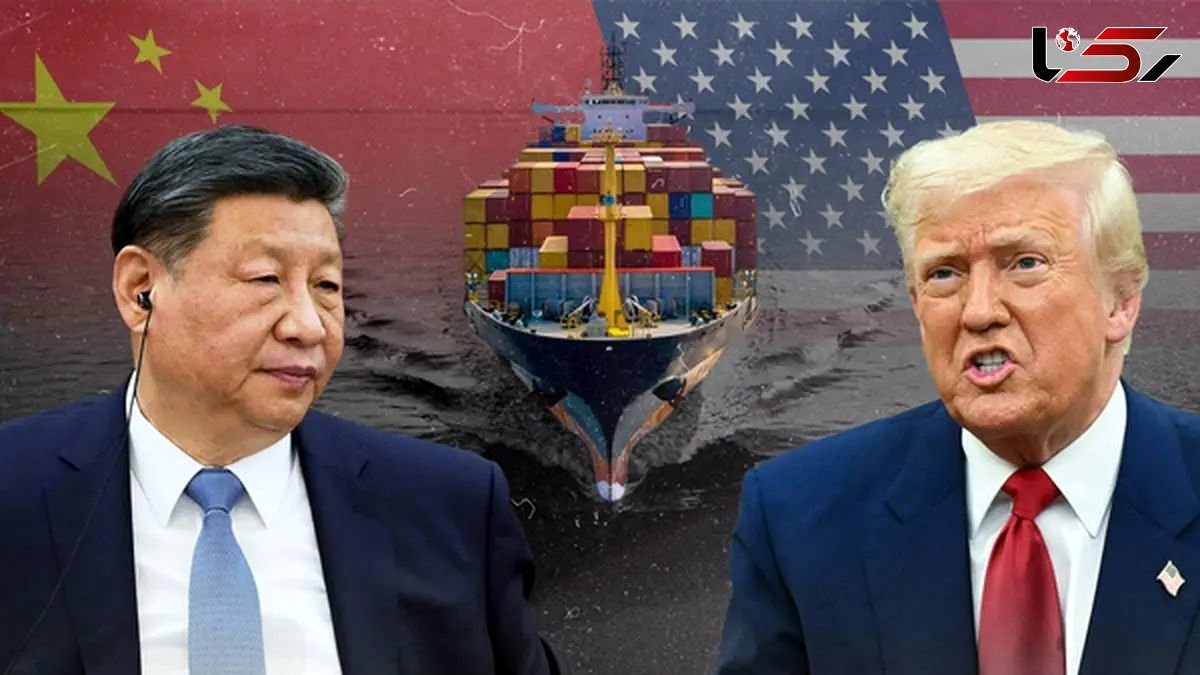Trump’s Civilizational Challenge to China: The Deepening Rivalry Between Two Global Powers
Rokna Political Desk: The strategic competition between the United States and China has now expanded beyond economics and technology, evolving — as analysts describe — into a civilizational confrontation between two global powers that is shaping the future of international politics.

While Beijing now appears to be adopting Western-style tactics—using sanctions and economic pressure to counter U.S. hostility—American analysts claim that President Donald Trump’s administration has entered a historic struggle of civilizations with China.
According to Rokna, the Washington-based Foundation for Defense of Democracies (FDD) has asserted that the Trump administration’s new “Near-Global Economy” initiative seeks to redefine the global economic order by reducing dependency on China. The plan aims to unite market democracies in opposition to Beijing’s authoritarian model.
For decades, successive U.S. administrations have relied on trade and economic leverage to pressure rival nations. However, FDD has voiced outrage over China’s recent decision to impose restrictions on the export of critical minerals and lithium batteries to the U.S., calling Beijing an “unreliable supplier of vital global goods.”
The think tank added that while China attempts to weaken U.S. defense capabilities by limiting vital exports, it simultaneously floods the global market with excess vehicles and subsidized steel, undermining free-market producers.
According to the analysis, the Trump administration views these actions as part of China’s aggressive economic strategy aimed at eroding the competitive foundations of the free world. In response, the White House has warned of a new wave of tariffs designed to restrict China’s access to the massive U.S. consumer market. However, Trump and his advisers argue that tariffs alone are temporary solutions; instead, the U.S. must build an entirely new structure for global trade.
Trump’s core idea is that the global economy should not remain open to countries that violate free-market principles. His administration seeks to establish a new economic alliance—led by the United States—composed solely of like-minded nations that share and uphold these rules. Member states that comply with American economic standards would gain preferential access to U.S. markets, capital, and technology.
Trump’s “Near-Global Economy” framework rests on four key principles: fairness, stability, transparency, and freedom.
Fairness calls for healthy competition free from fraud and corruption, ensuring that American workers do not suffer because of forced labor, environmental abuse, or bribery abroad. Stability demands that nations engaged in warfare or cyberattacks be excluded from the new economic order. Transparency requires the elimination of corruption, shell companies, and financial secrecy to promote equitable global trade. Freedom, as the foundation of economic power, emphasizes the reliability of states that respect private property and move toward democratic governance.
The Foundation for Defense of Democracies concludes that Beijing’s policies amount to economic self-sabotage, arguing that now is the time to construct a new global trade system based on voluntary partnerships, fair rules, and clear boundaries.
Experts believe that as the world rapidly reorganizes economically, Trump’s “Near-Global Economy” vision could mark the beginning of a new era of civilizational competition between rival political systems—a contest that will shape both America’s future and the global economic landscape.
Send Comments